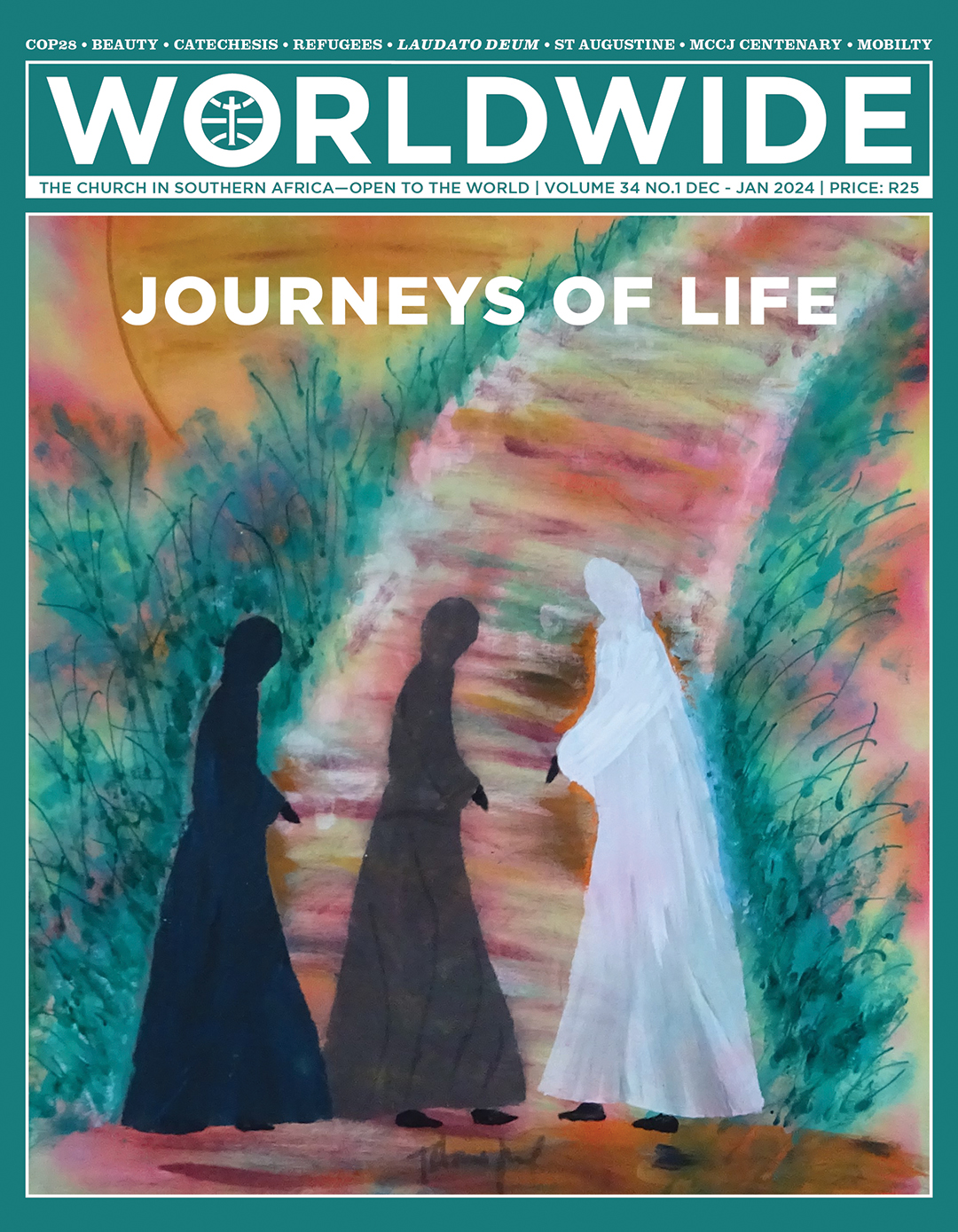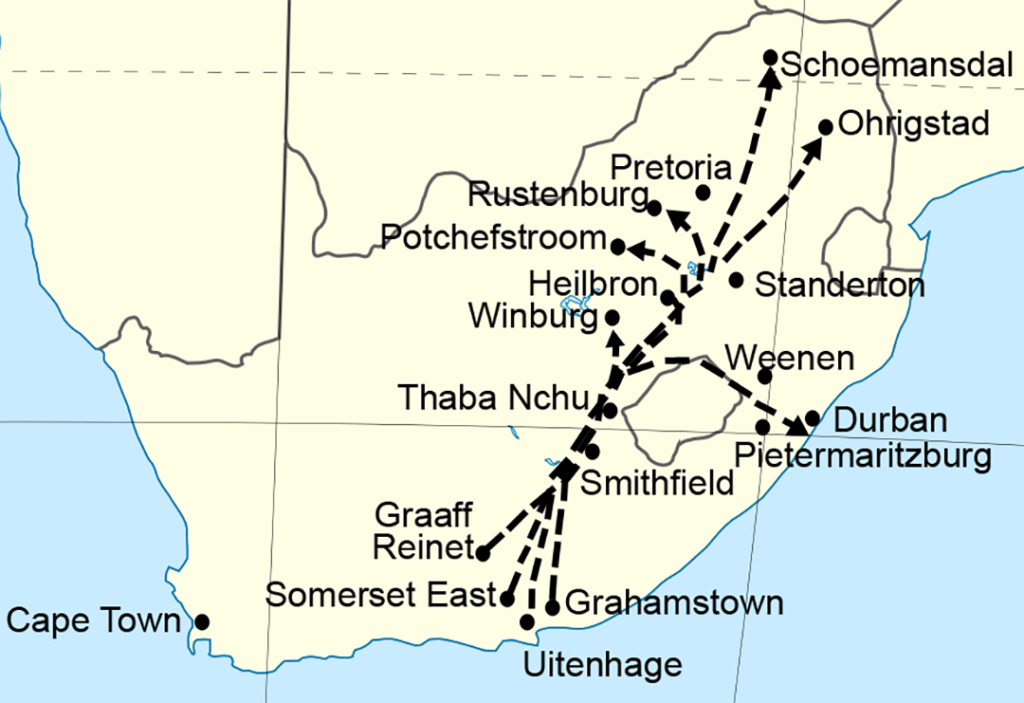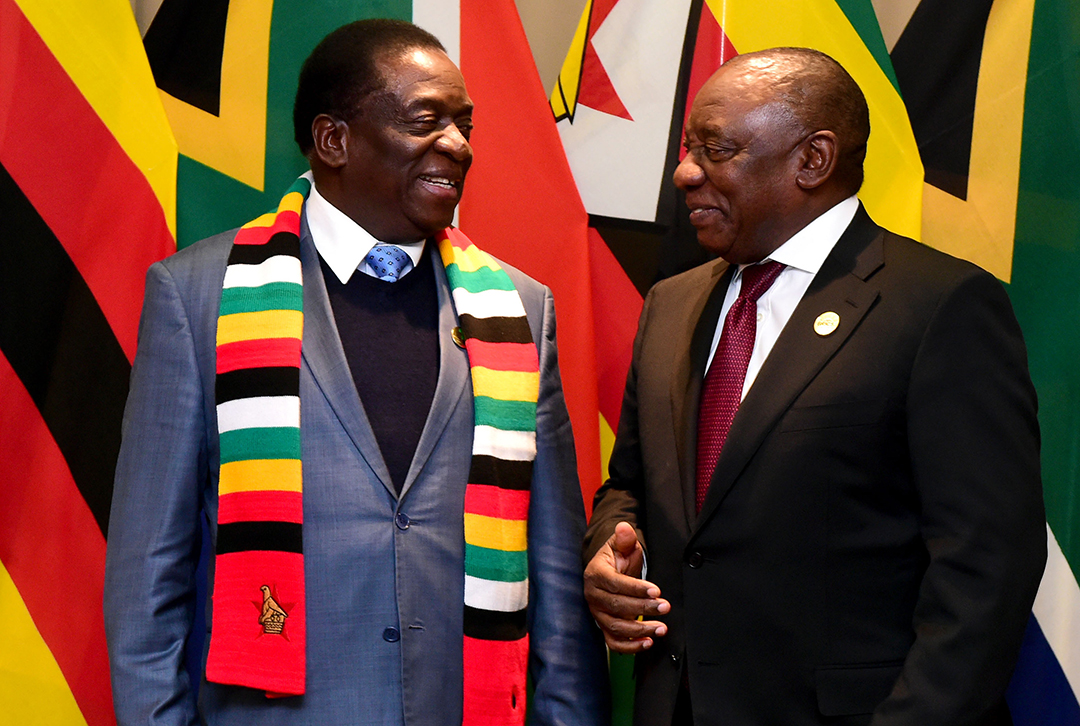
JOURNEYS OF LIFE
The painting on the front cover entitled “The disciples of Emmaus” reflects our journey of hope. Jesus not only walks with us, but gives us the wisdom to perform our ministries and opens our eyes to see Him in the people that we are serving.
INSIGHTS • DIRECTIONS

A LAND OF MANY JOURNEYS
BY Mike Pothier | Programme Manager, SACBC Parliamentary LIAISON OFFICE, CAPE TOWN
VARIOUS KINDS of journeys are written deeply into South African history. Linguists tell us that most of the languages spoken by black South Africans today originated centuries ago in west-central Africa, indicating that they—and the generations of people who spoke them—have been on an immensely long journey that ended here at the southernmost tip of the continent.
An even longer journey, in distance if not in time, brought the first European settlers to these shores, soon to be followed by another set of long journeys, from the East—from places now called Indonesia, Malaysia, India.
One particular journey is so deeply etched into the consciousness of those whose forefathers and mothers undertook it, that its name has become iconic—die Groot Trek, the Great Journey. Partly as a result of that journey, the interior of the country was opened up to scientific exploration, leading to the discovery and exploitation of an unimaginable wealth of diamonds, gold and other minerals.
But this wealth had to be dug out of the ground, and this required another set of journeys—millions of African men (and a significant number of women too) were forced to become migrant laborers, journeying from the rural districts of South Africa and its neighbouring countries, to sweat in the mines or to work in the homes and factories of the settlers’ children.
And while all these incoming journeys were under way, the original human inhabitants of this corner of the continent, the San and the Khoi, undertook their own slow and painful journeys of exit, westward and northward, harried and sometimes hunted by the newly-arrived populations, until today, when only small, remnant groups survive, clinging on in Namaqualand, Namibia and Botswana.
Most of these physical journeys had a discernible end-point, a destination which could be reached, signifying the end of the journey. This is not the case with other kinds of journeys, the metaphorical ones in our social, cultural and political lives. These journeys take us in all sorts of directions, sometimes unwelcome yet sometimes wonderful, like the sporting journey that ended with the Springboks winning the rugby world cup last month. (At the time of writing another sporting journey, on the cricket fields of India, had not yet reached its end.)
We in South Africa are fortunate to be given these regular moments of choice; to have our ultimate destiny as a nation placed in our own hands.
Our political journey, especially, is hard to predict. At times it seems that, like the Israelites of old, we are wandering in the desert, with the promised land still out of reach. The country is directionless and our leaders, who keep promising to get us back on track, instead take us down a variety of dead-end roads marked by corruption, state-capture, incompetence and mediocrity.
But our national journey need not be one of aimless drifting and missed destinations. Every few years we come to a crossroads and we have the opportunity to choose—whether to stay on the same path, however rocky and worn-out it has become, or to take a new one, hoping that it will take us closer to where we want to be.
Every election is a crossroads, an opportunity to renew our sense of direction, to read the signs of the times and to reflect on the wrong turnings we have taken in the past. We in South Africa are fortunate to be given these regular moments of choice; to have our ultimate destiny as a nation placed in our own hands. We need not look very far in order to see countries and peoples who are not free to set their own course, who are forced to take roads not of their own choosing.
Let us, therefore, make good use of the crossroads that next year’s election presents. Let us choose the direction of our journey for the next five years as wisely as we can.

